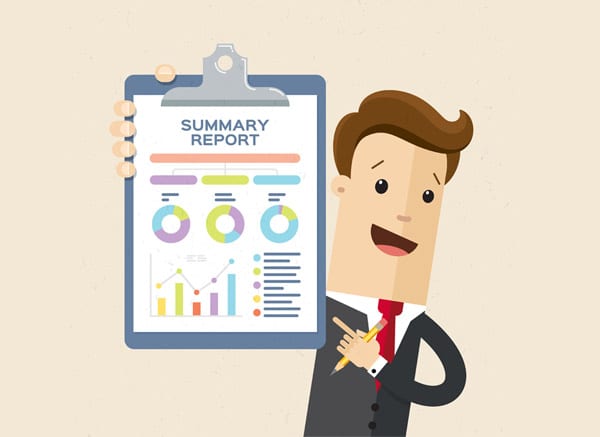



מנהלי כספים, 18 IFRS מעבר לדלת: טיפים “מיוחדים” שיסייעו לכם להימנע מפגיעה ברווח התפעולי
היישום של IFRS 18 מתקרב בצעדי ענק והוא אתגר משמעותי עבור מנהלי הכספים. לתקן החדש יכולות להיות השלכות משמעותיות על אופן הצגת התוצאות למשקיעים ובראשם הרווח התפעולי וה-EBITDA. כמו לכל תקן חשבונאי, גם לתקן חדש זה קיימים יתרונות וחסרונות וגם נקודות חולשה. אנו סבורים שנכון להיערך ולבצע פעולות במידת הצורך כבר בעת הכנת הדוחות הכספיים הקרובים לשנת 2025. הפוסט כולל מספר טיפים "מיוחדים" לפעולות שניתן לבצע כבר כעת בכדי להציב את החברה בעמדה דיווחית משופרת, במיוחד בהיבט של הרווח התפעולי העתידי.
חמש תובנות על הקפיצה הנחשולית במניות הביטוח בשנה העברית החולפת לאור כניסת 17 IFRS
"הכוכבים הסתדרו" לחברות הביטוח השנה, כאשר יחד עם הכניסה הדרמטית של 17 IFRS שהמודל החשבונאי שלו הוביל להסטת המיקוד של המשקיעים ממכפיל הון לרווחיות, הייתה להן שנה עסקית טובה מאד. התוצאה היא קפיצה של 170% במדד מניות חברות הביטוח בשנה העברית שחלפה! יש כאן מקרה מבחן מכונן בנוגע לקשר שבין חשבונאות לבין שוק ההון, שמספק עוד הוכחה אמפירית לכוחה העצום של החשבונאות. עם זאת, לקראת הדוחות השנתיים יש עוד לא מעט מה לשפר מבחינת איכות המידע שניתן למשקיעים לאור המודל החשבונאי החדש, לצורך ניתוח ראוי ובניית תחזיות. ראו להלן חמש תובנות חשבונאיות מניתוח האירוע המשמעותי הזה.
בעקבות ה- ESG: המתח בין שתי מעצמות התקינה החשבונאית העולמיות מגיע לשיא
המתיחות בין ה- IFRS לבין ה- USGAAP עולה מדרגה בעידן ממשל טראמפ: נאום שנשא פול אטקינס, יו"ר ה- SEC, בשבוע שעבר מציב "איום" על ה- IFRS. האיום החדש נוגע להפיכת ההחלטה ההיסטורית של ה- SEC של הכרה מלאה ב- IFRS עבור מנפיקים זרים בארה"ב, שמיושמת כבר מ- 2008. הרקע לכך הוא הקידום האינטנסיבי לטענת אטקינס, של נושאי הדיווח על קיימות וסיכוני אקלים על ידי ה- IASB, בין היתר באמצעות מוסד התקינה האחות (ISSB). מבלי להיכנס לחשש הכבד מהשפעות פוליטיות על תקינה חשבונאית ואכיפתה מכל צידי המתרס, צריך להיות ברור לכולם שאלו נדרשים להיות ניטרליים וחפים מאג'נדות כאלה ואחרות.
מעגבניות למאזנים: פרשת רמי לוי מחדדת שמנכ”לים ודירקטורים לא יכולים להתחמק מהבנה חשבונאית
החלטת ועדת האכיפה המנהלית של רשות ניירות ערך בפרשת רמי לוי היא עיגון מעשי של האחריות המוטלת על מנכ"לים של חברות ציבוריות ותהיינה לה השלכות מעשיות רחבות ודרמטיות. אם נתעלה מעל הנסיבות הבעייתיות הספציפיות שלה, ההחלטה, שמסמנת מגמה ברורה באכיפה בשנים האחרונות, מבהירה שמנכ"לים חייבים להחזיק בהבנה חשבונאית ובמעורבות אקטיבית בהכנת הדוחות, גם כשהם נעזרים באנשי מקצוע ובמומחים. מגמה זאת מתחברת גם לצורך הברור בעצמאות חשבונאית של הדירקטורים שבלעדי הבנה חשבונאית, אין להם יכולת מעשית לפקח על ההנהלה. בין אם נרצה ובין אם לא, המסקנה שאין מנוס ממנה היא שדירקטורים ומנכ"לים, גם אם הם מגיעים מדיסציפלינות אחרות, לא יכולים לכהן
Inherent Distortion in IFRS 18: the Expected Impact on Operating Results of Companies Whose Main Business Activity Includes Investing in Associates and Joint Ventures Accounted for Using the Equity Method
Companies that Invest in associates and joint ventures accounted for using the equity method as part of their main business activities may “fall between the cracks” under IFRS 18. This could be the case, for example, with holding companies, developers in the renewable energy sector and companies that expand their global operations through local partners […]
Off-Balance Sheet Financing: The Proposed Amendment to IAS 37 Demonstrates the Need to Recognise a Liability for the Acquisition of an Asset in Exchange for Performance-Based Contingent Consideration
Currently, IFRS does not provide an answer to the fundamental question of whether a financial liability arises from an obligation for contingent consideration that depends on the future performance of the acquirer in relation to the acquired asset, unless it involves a business combination. As a result, the practice in this area varies, and the acquisition of property, plant and equipment or an intangible asset in exchange for such contingent consideration may not appear at all in the statement of financial position.
The Missing Twist in the New Proposal for Amendments to IAS 28 on the Equity Method
The New ED Proposal deliberately avoids fundamental issues of what exactly is significant influence and whether the equity method is a measurement basis or a one-line consolidation. However, the key issue that should have been addressed is why a fair value model, which is more relevant to investors, is not adopted for associates. A preferable alternative solution is that a fair value measurement for investments in listed associates should be required, while it will be optional for non-listed associates.
It is Time for the IFRS to Adopt Pushdown Accounting
Adopting the pushdown accounting model in IFRS will lead to a tremendous improvement in the relevance of financial statements without compromising their reliability. In line with a new extensive project taken by the IASB, and in view of the distortion resulting from the current cost accounting approach, this accounting model is an essential solution to the inadequate presentation of the economic value of intangible assets, which can constitute a significant portion of the value of many companies. Under this accounting model, upon a change in control a one-time revaluation of the acquired company's identifiable assets and liabilities and any goodwill
Unprecedented Disclosure Requirements in IFRS on Business Combinations: Where else should the Trend to adopt the Management Approach Go?
IFRS has taken a significant step forward with a proposal for disclosure requirements of management key objectives and related targets in strategic business combinations and the extent to which they are subsequently met. The background to this unprecedented disclosure stems from the concern that management may try to conceal failed business combinations. The proposal reflects a clear trend by the IASB to use the management approach to improve the relevance of financial statements. Shaking up traditional accounting and increasing auditor awareness of the business perspective through the management approach is also appropriate in several other accounting topics, such as the















